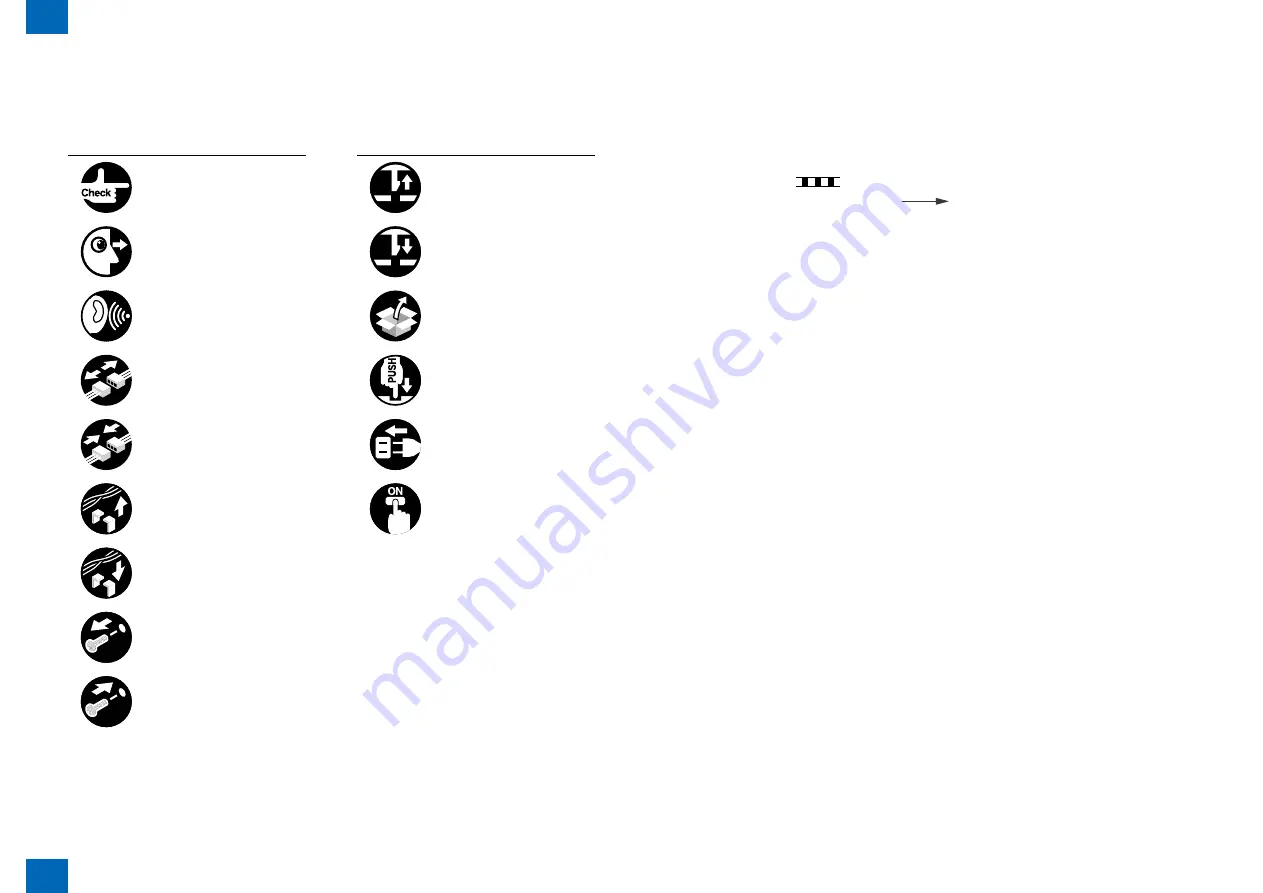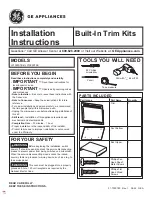
0
0
0-3
0-3
Explanation of Symbols
The following symbols are used throughout this Service Manual.
Symbols
Explanation
Symbols
Explanation
Check.
Remove the claw.
Check visually.
Insert the claw.
Check the noise.
Use the bundled part.
Disconnect the connector.
Push the part.
Connect the connector.
Plug the power cable.
Remove the cable/wire
from the cable guide or wire
saddle.
Turn on the power.
Set the cable/wire to the
cable guide or wire saddle.
Remove the screw.
Tighten the screw.
The following rules apply throughout this Service Manual:
1. Each chapter contains sections explaining the purpose of specific functions and the
relationship between electrical and mechanical systems with reference to the timing of
operation.
In the diagrams,
represents the path of mechanical drive; where a signal name
accompanies the symbol, the arrow
indicates the direction of the electric signal.
The expression "turn on the power" means flipping on the power switch, closing the
front door, and closing the delivery unit door, which results in supplying the machine with
power.
2. In the digital circuits, '1' is used to indicate that the voltage level of a given signal is
"High", while '0' is used to indicate "Low". (The voltage value, however, differs from
circuit to circuit.) In addition, the asterisk (*) as in "DRMD*" indicates that the DRMD
signal goes on when '0'.
In practically all cases, the internal mechanisms of a microprocessor cannot be checked
in the field. Therefore, the operations of the microprocessors used in the machines
are not discussed: they are explained in terms of from sensors to the input of the DC
controller PCB and from the output of the DC controller PCB to the loads.
The descriptions in this Service Manual are subject to change without notice for product
improvement or other purposes, and major changes will be communicated in the form of
Service Information bulletins.
All service persons are expected to have a good understanding of the contents of this Service
Manual and all relevant Service Information bulletins and be able to identify and isolate faults
in the machine.
Summary of Contents for Puncher Unit-BF1
Page 4: ...空白ページ ...
Page 6: ...0 0 0 6 0 6 ...
Page 7: ...0 0 0 7 0 7 ...
Page 8: ...Safety Precautions Notes Before it Works Serving ...
Page 10: ...1 1 Product Outline Features Specifications Names of Parts ...
Page 14: ...2 2 Technology Basic Configuration Controls ...
Page 33: ...4 4 Installation Checking the Contents Installation Procedure ...




































